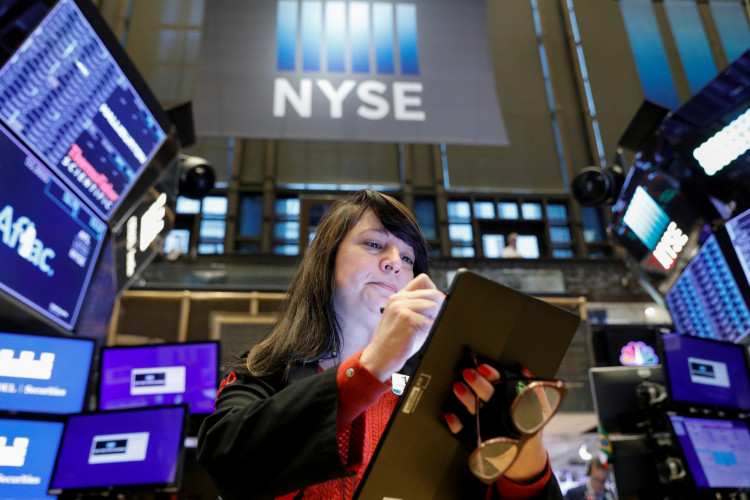Promising economic data released on Tuesday signaled a resilient US economy: Orders for durable goods in May surprisingly grew 1.7% month-over-month, reflecting a 0.7% increase in new business capital investments in core capital goods. Though the growth rate for April was revised downwards, suggesting cautious corporate investment, it was still better than the predicted stagnation.
In June, the consumer confidence index rose beyond expectations, reaching an 18-month high. New home sales in May didn't decline as expected, but instead, surged 12.2%, marking the biggest increase in over a year. Both new home sales and April's house prices demonstrate that the housing market is still capable of withstanding Fed rate hikes.
As the data showed the resilience of the US economy, market concerns eased. Risk appetite improved, safe-haven sentiment cooled, US Treasury bond prices fell, and yields rebounded, with the benchmark 10-year US Treasury yield rising 10 basis points from Monday's week-long low. After consecutive declines, US stocks rebounded, with blue-chip tech stocks like Tesla, which had weighed on the market on Monday, seeing gains and once again driving the rise in US stocks. Chinese concept stocks saw even larger increases.
European Central Bank President Christine Lagarde adopted a hawkish stance, announcing that the ECB would continue to raise interest rates in July and tighten monetary policy for a long time. European government bond yields collectively rose, with UK bond yields leading the way. The euro accelerated its rise, causing the US dollar index to decline for two consecutive days. However, non-US currencies did not all benefit.
After Kanda Shinji, another Japanese government official warned about the depreciation of the yen. Finance Minister Suzuki Junichi warned that the current fluctuation of the yen was one-directional and swift and that action would be taken if necessary. The yen's bounce on Monday was short-lived, as the yen resumed its seven-month low trend against the US dollar, breaching 144.00 during the session and approaching the key exchange rate threshold of about 145 when the Japanese government last intervened in the foreign exchange market.
According to reports, Fidelity Investments is preparing to apply for a Bitcoin spot ETF, making it the next Wall Street giant to seek to issue such an ETF after BlackRock. Bitcoin once rose back above $31,000, rebounding more than $1,000 from the day's low.
Among commodities, international crude oil, which had just reversed its continuous decline on Monday, fell back. Analysts believe that Lagarde's emphasis on higher interest rate expectations could potentially impact economic activity and oil demand, and the premium of Brent Crude for two-month delivery suggests traders are worried about oversupply in the market, considering the slight surplus of supply.
In US stock markets, the three major US stock indices generally opened higher and maintained an upward trend. At midday when the daily highs were refreshed, the Nasdaq Composite Index rose over 1.8%, the S&P 500 Index rose nearly 1.3%, and the Dow Jones Industrial Average rose over 260 points, or nearly 0.8%.
By the end of the day, all three major indices had gained. The Nasdaq closed up 1.65% at 13,555.67 points, and the S&P 500 rose 1.15% to close at 4,378.41 points, both departing from their closing lows since June 9. The Dow, which had fallen for six consecutive days, ended up 212.03 points, or 0.63%, at 33,926.74 points, leaving the low since June 7 refreshed for two consecutive days.
Notably, the once slumping electric vehicle stocks rebounded significantly. Tesla rose more than 4%, NIO surged more than 11%, and XPeng Motors and Li Auto also saw increases. After the recent crash of Bitcoin and other cryptocurrencies, the rebound of Tesla stock seemed to signal that investors are seeing a recovery in the electric vehicle market, which has been negatively affected by the crypto market turmoil.
Biogen fell for the third consecutive day after analysts expressed doubts about the launch of Aduhelm, its controversial new Alzheimer's drug. On Tuesday, the stock fell more than 5%, bringing the total decline to more than 12% since Friday.




